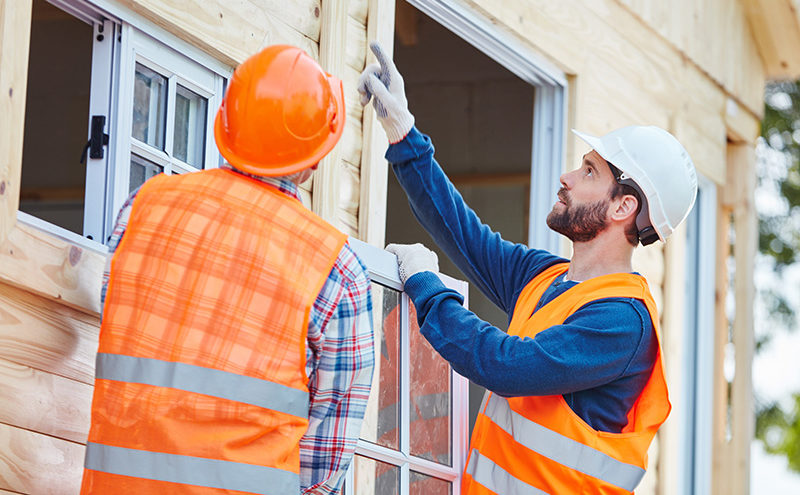
CHANGE is needed to ensure that buildings are designed with better ventilation, a University of Strathclyde professor has warned.
Professor Tim Sharpe, from the university’s department of architecture, formed part of an expert panel which found that building standards are failing to ensure offices, shops, public buildings, and homes provide health ventilation.
The panel of scientists and engineers described a system where buildings were complying with the standards at the design phase but there was limited scrutiny to see if those standards were being met as the buildings went up – or when in use or adapted over time.
Writing in the Chief Medical Officer’s Annual Report 2022 Air Pollution, they said, “Whilst new buildings are subject to building standards, these are quite limited in scope and often poorly applied. There is good evidence that many buildings constructed to recent building standards fail to meet the minimum requirements for a number of aspects including ventilation.”
When it came to older buildings, the expert panel noted that ‘most critically these standards are not relevant or applicable to most older buildings in the UK’.
Professor Tim Sharpe, head of the department of architecture at the University of Strathclyde, said, “Change is needed to ensure that we design buildings with good ventilation and maintain this provision over time. The way that we design new buildings and retrofit existing buildings can have major impacts on occupants’ health and as we make buildings more energy efficient it is vital that we also make sure that they provide healthy and useable environments.”
Recent reports from the World Health Organisation, the Royal College of Paediatrics and Child Health, and the Royal Academy of Engineering have all called for measures to improve indoor air quality.
The experts note in chief medical advisor’s report, “Ensuring good ventilation can reduce people’s exposure to indoor pollutants that cannot be fully controlled. Ventilation is also essential for wider health and wellbeing, thermal and moisture control in buildings and it can reduce people’s exposure to airborne infectious diseases including Covid-19 and influenza.”
Where ventilation cannot be fully effective, the report added that it can be supplemented by air cleaning technology, such as HEPA – or high efficiency particulate air – filtration. A HEPA filter can remove particles the size of bacteria and viruses from the air.
With homes, the experts stated the focus should be on trying to improve indoor air quality in older homes, with 80% of homes in the UK being built before 1990.
The panel said, “People living in the most deprived areas and in particular in rented properties are more likely to live in homes that are overcrowded with lower energy efficiency, have inadequate heating and ventilation, are poorly maintained, and are more likely to have poor indoor air quality.
“Tackling domestic indoor air quality has several specific challenges, including that the responsibility for identifying a problem often lies with the owner who may not have the knowledge, funds, or agency to tackle the problem.”
The need to improve building standards was also recognised in the report, with the panel saying that standards ‘rely on guidance notes and these had become the de facto standard rather than the minimum requirement’. It added that expert skills were being lost as builders, architects, and engineers followed the guidance notes rather than designed from first principles.
Also, changes to standards had been driven by single issue concerns, often at the cost of ventilation and indoor air quality. For example, buildings had been made more airtight to boost energy efficiency.
Cath Noakes, professor of the environmental engineering for buildings at the University of Leeds and the lead author of the technical review on solutions for indoor air quality in the CMO’s report, said, “The solutions exist to ensure we can improve indoor air quality. We need to strengthen the systems that ensure they are implemented and working effectively. At the same time, we must build our knowledge base to understand the economic and social costs that poor indoor air quality can cause.”
The indoor air quality expert panel comprised: Professor Catherine Noakes, University of Leeds; Professor Tim Sharpe, University of Strathclyde; Dr Helen Freeman, University of Leeds; Professor Malcolm Cook, Loughborough University; Dr Abigail Hathway, University of Sheffield; Dr Henry Burridge, Imperial College London; Dr Maarten van Reeuwijk, Imperial College London.








